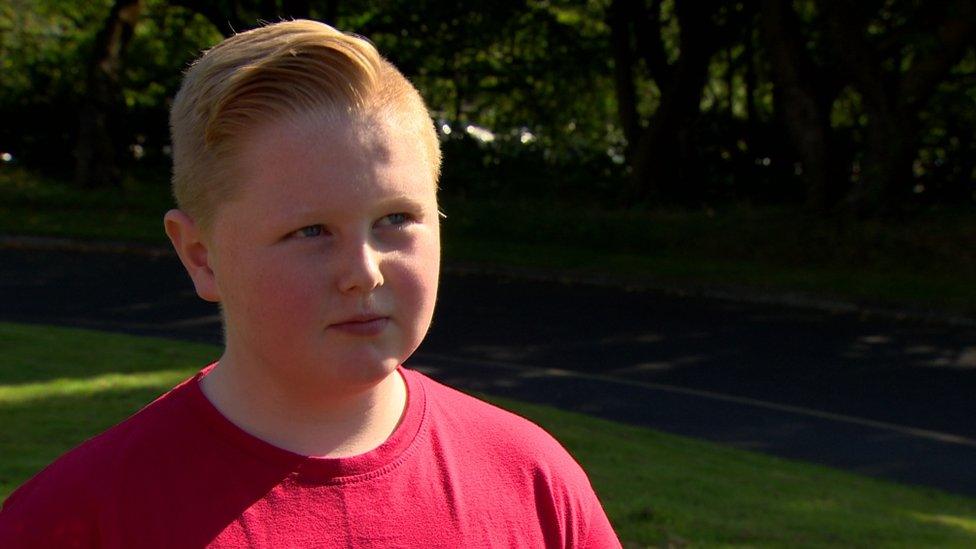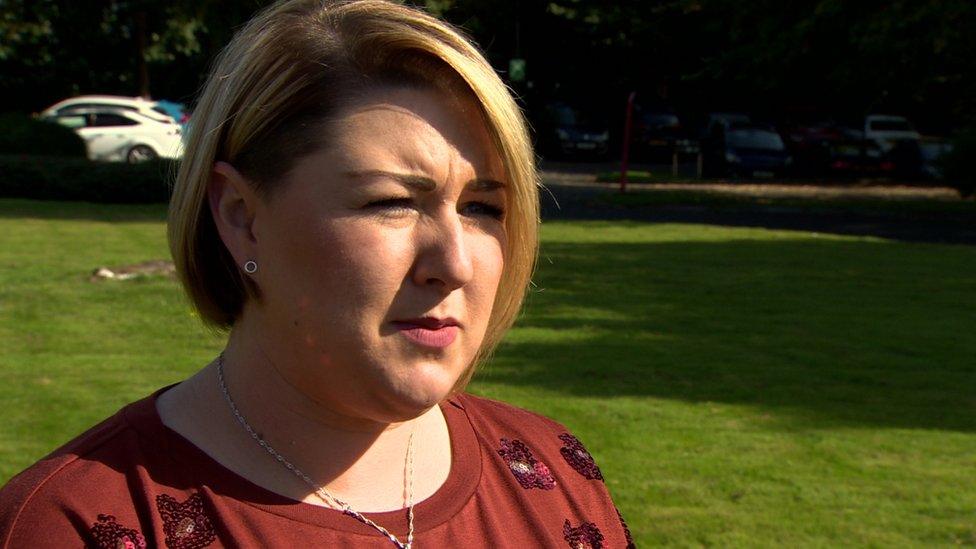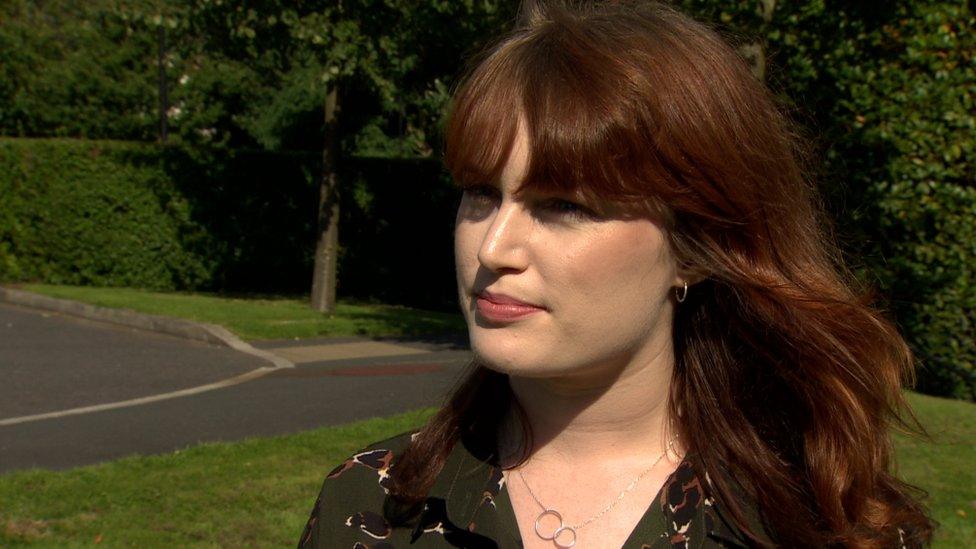Young people helping teachers handle bereavement
- Published
Returning to school after a parent dies
"No-one was really talking about it because they didn't want to make me start crying or anything."
Eleven-year-old Kyle Hewitt's father died from a rare disease four years ago.
Alongside dealing with his grief, Kyle also had to face a return to primary school after his dad's death.
On Thursday, he shared his experience of bereavement with teachers and youth workers to try to help them help children like him.

Eleven-year-old Kyle Hewitt's father died from a rare disease four years ago
And that meant remembering what it was like being back in class having recently been bereaved.
"I didn't want to feel really different to anyone, I was just really nervous about going back," he says.
"I didn't want anyone to think of me any differently from before."
Giving advice alongside Kyle and his 15-year-old sister Sophie at the conference, organised by Cruse Bereavement Care, was their mum Lisa.

Lisa, Kyle's mum, advices teachers and youth workers to listen to those children who have been bereaved
She says their school had been sensitive about what they had gone through.
"The teachers were really good at explaining to the other children," she says.
"It was important for the school to do that, just to make the kids aware and open communication about what had happened."
'Just be there and listen'
Grief, she says, is different for everybody and she advises that you go by what the child needs.
"If they do want to talk about it or want it discussed, that's fine," she says.
"It was very important for Kyle to acknowledge that he still has a dad, he's just no longer with us.
"Just be there and listen to them and give them a bit of support if they need it."
According to the Child Bereavement Network, about 1,500 children in Northern Ireland lost a parent in 2018.
Victoria McCormick's father took his own life when she was only 14.
After receiving counselling through Cruse, she went on to volunteer for the organisation.

"I just blocked it out for quite a while. I didn't really try to process what had happened," says Victoria McCormick of the weeks after her father's death
She is now 24 and also spoke to teachers about her experience of returning to school after her father's passing.
"My dad passed away on the 18 December, so it was just as the Christmas holidays started," she says.
"And I went back to school with everyone else in January so I really only had two weeks."
Returning to school was daunting for Victoria, who was aged just 14 at the time.
"I just blocked it out for quite a while. I didn't really try to process what had happened," she says.
"It wasn't easy but it's a journey, it's not a destination."
Her mum Margaret says communication from the school had been key at that time.
"Her head of year would have phoned me at night in her own personal time to find out how Victoria was doing," she recalls.
'Just listen'
Victoria says that a school's response to the death of a parent should be guided by the bereaved student.
"The priority is to speak to the student and see how they feel," she says.
"A lot of teachers feel they have to keep checking in on the student but that's maybe not beneficial.
"They feel that all eyes are on them if the teacher keeps coming into every class and keeps saying: 'Are you OK?'
"Take the student aside, speak to them and see how they feel and if they would like you to check in on them or maybe they want some space.
"It's just important to establish what the student feels they need from the teacher."
Kyle Hewitt echoes Victoria's advice.
"Don't talk about it if they don't want to talk about it," he says.
"If they want to talk about it, just listen."